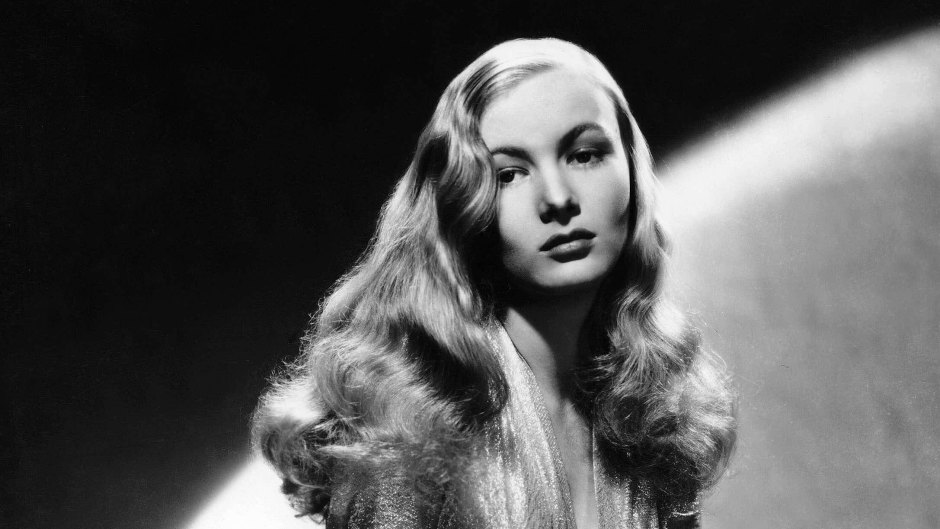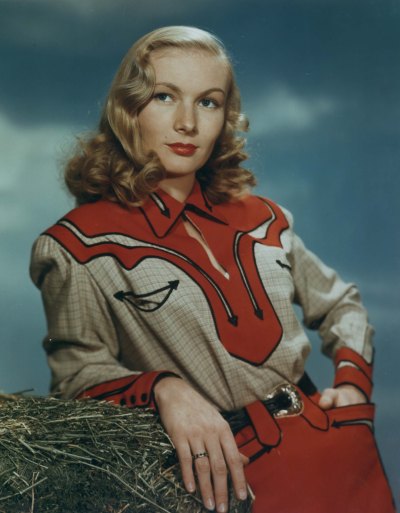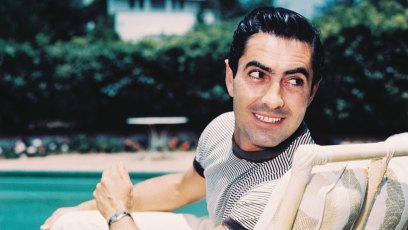
George Hurrell/Paramount/Kobal/Shutterstock
Veronica Lake ‘Sacrificed Her Childhood’ to Become a Star: She Was Not the ‘Typical Femme Fatale’
Two years before her death, Veronica Lake talked about writing a cookbook. “It will not specialize in 1,000 chocolate chip recipes or what to do with leftover potato chips,” said the former movie star. “It will be simple and fraught with easy dishes to whip up when you’re drunk or tired or both.”
Veronica, who was born Constance Ockelman in Brooklyn, New York, knew what she was talking about. Although her beauty and mystique made her the biggest film sensation of 1941, fame, motherhood and four marriages failed to make her happy. Alcoholism would also become a burden she could never shake. Veronica eventually ran away, hoping to live out the rest of her life in quiet anonymity — but the world had other ideas.

After a young Veronica placed third in a Florida beauty pageant, her mother set her sights on making her a movie star. “Veronica sacrificed her childhood to her mother’s ambitions,” explains TCM’s Noir Alley host, Eddie Muller, who wrote a new foreword to the actress’ recently reissued memoir, Veronica: The Autobiography of Veronica Lake.
In 1940, with only a few small roles under her belt, Veronica was cast in I Wanted Wings. In it, movie audiences got the first look at Veronica’s golden hair falling like a curtain over her eyes in the peekaboo style that would become her trademark. “I was so frightened,” admitted Veronica, who says she created her icy femme fatale persona to hide her nerves.
More films would follow, including Veronica’s highly popular pairing with Alan Ladd in four movies over six years. “She became as much of an icon for women as well as men,” explains Muller of her appeal. “She was essentially the female version of Alan Ladd — cool, aloof and sharper than everybody else in the room. Not your typical femme fatale.”
But being thrust into stardom she never wanted had a bad effect on Veronica. She earned a terrible reputation by squabbling with costars and directors. She often showed up late and hung over. “It’s the kind of behavior that men could get away with but not petite, beautiful, young women,” says Muller. “She was supposed to be arm candy. She wasn’t supposed to talk back and have a mind of her own. I think not being taken seriously contributed to her problems with alcohol.”
Veronica’s troubles were also exacerbated by her private sorrows. In 1943, her second child with husband John Detlie, an art director, was born prematurely after Veronica tripped on a film set. The baby died a week later, and six months later, the couple divorced.
In the aftermath, many famous and wealthy men came calling — Marlon Brando, Howard Hughes and Aristotle Onassis were among Veronica’s lovers — but she wed film director André De Toth in 1944. They had two children together, but it was not a happy union. “She was a trophy wife to him,” says Muller. “When she turned out to be more complex and needier than that, I don’t think he was particularly interested.”
To make matters even worse, Veronica’s mother sued the couple in 1948, claiming that her daughter had promised to support her and her husband for life. It was just the start of the couple’s money troubles. Two years later, they would be forced to declare bankruptcy after the IRS seized their home for back taxes.
In 1952, Veronica, on the verge of a breakdown, left everything behind, including her three children, and fled to New York. “They said, ‘She’ll be back in a couple of months,’” Veronica recalled. “Well, I never returned. Enough was enough already.”
Veronica endured two more unsuccessful marriages but remained largely out of the spotlight until a journalist tracked her down in 1962. As “Connie De Toth,” the former star was working as a cocktail waitress in the bar of a women’s hotel in Manhattan.
The unflattering story made Veronica the object of pity — which she greatly resented. “It’s as though people were making me out to be down and out. I wasn’t,” said Veronica, who returned the money fans sent as a “matter of pride.” Reportedly, she did keep one check — $1,000 from her former lover Marlon Brando — but she never cashed it.
In 1970, Veronica released her memoir and returned to the spotlight, as proud and defiant as ever. “I earned this face,” said the no longer-youthful former actress as she made the interview rounds.
In her last years, Veronica did some acting in summer stock and starred in a horror film. While visiting Vermont in 1973, she entered the hospital for stomach pains. She died a short time later from acute hepatitis and kidney injury caused by years of heavy drinking. “I wouldn’t live it any differently than it was,” Veronica said of her life. “How would I learn to be a person otherwise?”









































